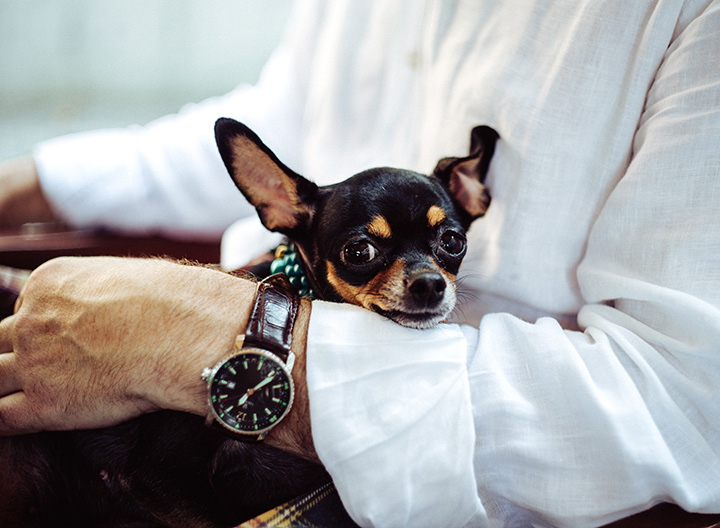Pet Travel
In Summary
- An Animal Health Certificate (AHC) will be required within 10 days of travel to the EU, replacing the pet passport. AHCs are required every time you travel to the EU and must be completed by an Official Vet (Emily is an Official Vet).
- Your pet must have a microchip and a rabies vaccination before an AHC can be completed. After the first rabies vaccination or after restarting any lapsed rabies vaccination you must wait 21 days before travel.
- Before re-entering the UK dogs must receive treatment for tapeworm between 1-5 days before returning. Cats do not have to be treated.
Details of the new requirements for pet travel to the EU and Northern Ireland are outlined below. We were notified of these changes on the evening of 14th December 2020 and they will take effect from 11pm on 31st December 2020.
Animal Health Certificates (AHC)
Under Part 2 listed status, EU pet passports issued by GB Official Veterinarians (OVs) will no longer be valid to travel to Europe or Northern Ireland. Instead, a pet travelling from GB to the EU or to Northern Ireland will need an AHC from 1 January 2021
Great Britain (England, Scotland and Wales), including the Channel Islands and Isle of Man, will become a Part 2 listed third country under the EU Pet Travel Scheme from 1 January 2021.
Travelling to the EU or NI with your pet
A current EU pet passport issued in GB will not be valid for travel to the EU or NI from 1 January 2021.
Before your dog, cat or ferret can travel to the EU or NI for the first time after 1 January 2021, you’ll need to take the following steps. These steps are similar to the current process for taking your pet to the EU, but you’ll need an animal health certificate (AHC) instead of a pet passport.
- You must have your dog, cat or ferret microchipped.
- Vaccinate your dog, cat or ferret against rabies – your pet must be at least 12 weeks old before it can be vaccinated.
- Wait 21 days after the primary vaccination before travel.
- Visit your vet to get an AHC for your pet, no more than 10 days before travel to the EU.
As long as you keep your pet’s rabies vaccinations up to date, you will not need to get repeat vaccinations for repeat trips to the EU or NI.
Getting an animal health certificate (AHC)
You must also take your pet to your vet no more than 10 days before travel to get an AHC. The AHC needs to be signed by an official vet (Emily is an OV.)
You must take proof of:
- your pet’s microchipping date
- your pet’s vaccination history
Your pet’s AHC will be valid for:
- 10 days after the date of issue for entry into the EU or NI
- onward travel within the EU or NI for 4 months after the date of issue
- re-entry to GB for 4 months after the date of issue
Travelling to Finland, Republic of Ireland, NI, Norway or Malta
If you’re travelling with your dog directly to Finland, Republic of Ireland, NI, Norway or Malta, it must have treatment against tapeworm (Echinococcus multilocularis). Your dog will need to receive treatment 1 to 5 days before arriving in any of these countries. Your vet must enter full details on the AHC following treatment.
Repeat trips to the EU or NI
Your pet will need a new AHC for each trip to the EU or NI.
To get a new AHC, you must take your pet to an official vet no more than 10 days before you travel. You must show proof of your pet’s:
- microchipping date
- rabies vaccination history
If your pet has an up-to-date subsequent rabies vaccination history, it will not need a repeat rabies vaccination before travelling again.
You’ll need tapeworm treatment if you’re travelling to Finland, Republic of Ireland, NI, Norway or Malta.
Returning to Great Britain
There will be no change to the current health preparations for pets entering GB from 1 January 2021.
Your pet must have one of the following documents when returning to GB from the EU:
- an EU pet passport (issued in the EU, or in GBbefore 1 January 2021), or a pet passport from a Part 1 listed third country
- the AHC issued in GB used to travel to the EU – which you can use up to 4 months after it was issued
- a GB pet health certificate (for travel into GBonly)
Your pet will not need this documentation if it’s entering GB from:
- NI
- the Channel Islands
- the Isle of Man
Travel from countries not free from tapeworm (Echinococcus multilocularis)
You’ll need to take your dog to a vet for an approved tapeworm treatment. You must do this no less than 24 hours and no more than 120 hours (5 days) before entering GB. This requirement will not change after 1 January 2021.
The treatment must:
- be approved for use in the country where the treatment is applied
- contain praziquantel or an equivalent proven to be effective against tapeworm (Echinococcus multilocularis)
You do not need to treat your dog for tapeworm if you’re travelling directly to the UK from Finland, Republic of Ireland, NI, Norway or Malta.
Pet travel helpline
Contact the pet travel helpline if you need more help:
Email: pettravel@apha.gov.uk
Telephone: 0370 241 1710 Monday to Friday, 8:30am to 5pm (closed on bank holidays)
Please remember that before entering the UK, all pet dogs must be treated for tapeworm. The European tapeworm Echinococcus multilocularis can cause dangerous cysts in human livers. The treatment must be administered by a vet not less than 24 hours and not more than 120 hours (1-5 days) before the scheduled arrival time in the UK.
At St George’s Vets, we use Rabies Vaccines that last three years. However, many non EU countries require rabies vaccination to be given a specific time prior to travel, stated in the Export Health Certificate for that country so preparation well before the date of departure is required.
If you are travelling to non EU countries, we advise phoning us or the PETS helpline well before the anticipated date of travel as the regulations can be protracted and complicated
Launch Of The Northern Ireland Pet Travel Scheme
Please click here to view/download the briefing note on the launch of the Northern Ireland Pet Travel Scheme issued in May 2025.
stgeorgesveterinarycentre@gmail.com | 01932 858890 | Find Us






